Posted on 6/30/2022
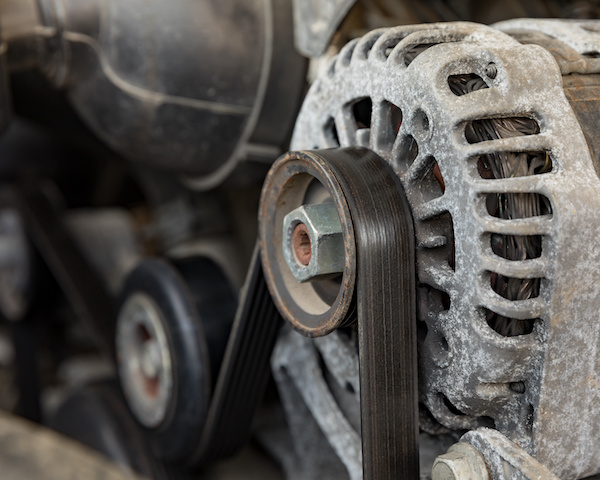
Last month, we went in-depth on the vehicle’s timing belt and all the things it does. But did you know that your car has more than one belt? One of them is called the serpentine belt, and it has the ability to run all your car’s vital accessories. This snake-like belt runs through various parts of your vehicle. It has a pulley attached to the engine, where it gets its power from. The serpentine belt powers your power steering pump, alternator, air conditioning compressor, and so much more. Without this powerful belt, none of these would work. At KAMS Auto Service, we understand the importance of the serpentine belt. Without one, you won’t get very far. Over time, this rubber belt can wear down, crack, and even break. That is why it is imperative you inspect your belt often. One of our technicians at KAMS Auto service would gladly check it for you when your car is due for service. Your automaker has a recommended interval or ... read more
Posted on 5/26/2022
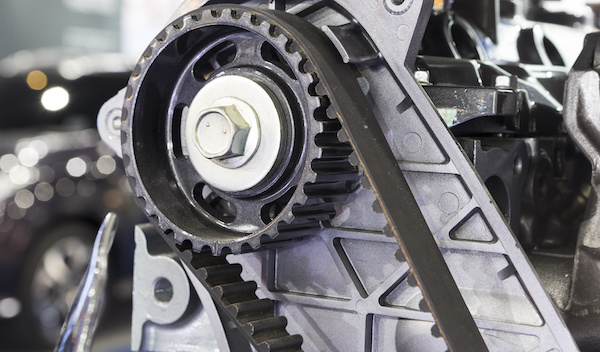
You may be wondering what a timing belt is before asking yourself what will happen to your car after it snaps. A timing belt, also referred to as a cam belt, is a continuous rubber loop with ridges on it. The loop's main purpose is to make internal combustion engines run continuously. It harmonizes the rotations of the crankshaft(controls pistons) and the camshaft(controls valves) To simply put it, the timing belt balances the timing of closing and opening of valves with up-and-down motion of the pistons. Why is a Timing Belt Important? A snapped cam belt can damage your car's engine within no time. If it breaks while you're driving, the camshaft will stop turning as the crankshaft continues to spin at 1000 rotations per minute. Consequently, the pistons will continue to fall and rise in their cylinders and strike closed valves. If such an incident occurs, the valves, pistons, and cylinder heads get damaged. Additionally, the destruction may be virtually instantaneous s ... read more
Posted on 4/27/2022
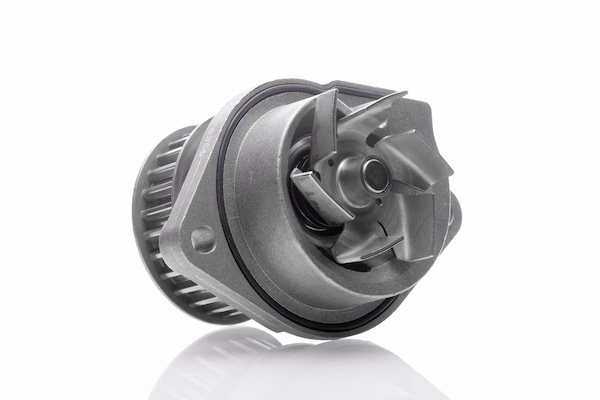
The water pump plays a vital role in the safety and functionality of your vehicle, so it makes sense to ensure that it's in good condition and working well. Here we take a look at what a water pump is and why it's so important. We also list the symptoms that could indicate there's a problem with your water pump, enabling you to seek assistance before your engine sustains permanent damage. What is a Water Pump? The water pump is a belt-driven pump that works by harnessing energy from the crankshaft. What Does a Water Pump do? Because an engine consists of numerous parts that move together rapidly and repeatedly, it generates a considerable amount of heat. The water pump acts to push coolant around the engine from the radiator. The coolant removes heat from the engine, enabling it to operate at a safe temperature. If the water pump isn't operating correctly or fails completely, the engine will overheat. This can result in components warping and buckling, or failing ... read more
Posted on 3/28/2022
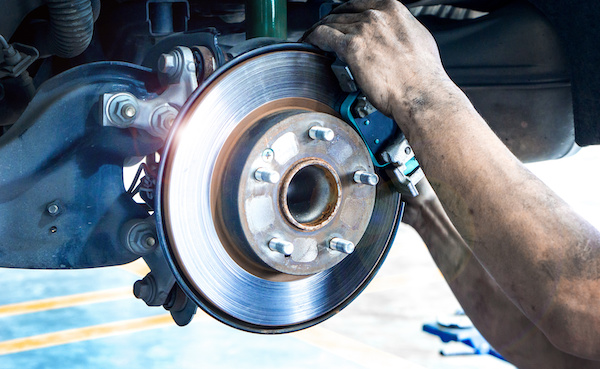
As impeccable customer care is among our highest priorities, we at our auto repair shop always think about the safety of our community's motorists. That is why we do our best to provide them with the most professional brake service and repair in the area. No matter what make, brand, or model of vehicle you drive, we are here to take care of your braking system. Usually, there are several signs that show you that you need to have the brakes of your car inspected by a qualified mechanic: When applying the brakes, grinding or squeaking noises could be heard The brake warning light on the dashboard turns on Your vehicle takes longer to stop or slow down The brake pedal feels soft The brake fluid level is low When you encounter such symptoms and take your car to our certified and experienced auto techs, they will apply their knowledge and expertise to quickly locate and deal with the problem. Our state-of-the-art tools and equipment will allow us to bring you back on the roads in ... read more
Posted on 2/28/2022
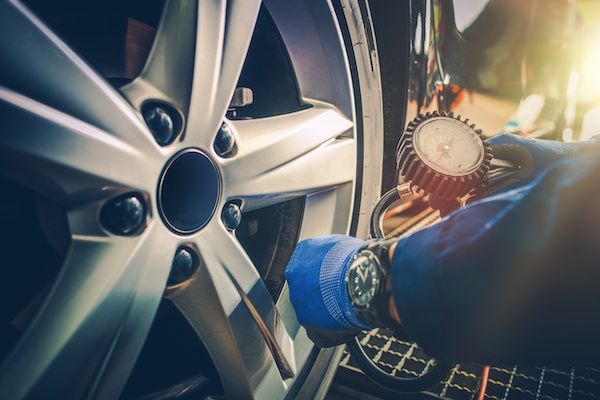
It doesn't require an automotive expert to know that air expands in higher temperatures and contracts in colder temperatures. As a result of this phenomenon, vehicle owners should regularly check the air in their tires. There are various ways to check tire pressure, including the traditional gauge tool. Most gas stations will also have a measure and refill air station that you can use. Most drivers see the most noticeable tire fluctuations in winter, as the cold temperatures can cause the pressure to drop by as much as five psi, which is pretty drastic. Plus, driving on under-inflated tires is considered unsafe. Not only can it increase your risk of an accident, but it can cause uneven wear and premature tire wear. As the seasons come and go, you may wonder how often you should check the air in your tires. How Often Should You Check Tire Pressure As the seasons affect the pressure of your tires, you may be wondering how often you should be checking the pressure. The ans ... read more
Posted on 1/20/2022

Wiper blades are necessary for the Acworth drivers, especially during this time of year. The transition from fall to winter can be harsh and abrupt in Southwest Virginia, so it's best to be prepared for inclement weather conditions. We often forget about replacing our wiper blades and don't consider them part of our normal vehicle maintenance. However, they are just as crucial to your safety as an oil change or tire service. If you want to be extra careful, your wipers should be replaced every six to twelve months. The interval between each replacement can vary depending on use, blade quality, and other environmental factors. Typically, all cars will have a set of wiper blades for the windshield. If you have an SUV or vehicle that sits higher, you may also have rear windshield wipers. Most of the time, you can utilize your senses to determine whether you need new wiper blades. Proper functioning wipers should always be able to clear off the dirt, rain, or snow on your wi ... read more
Posted on 12/20/2021
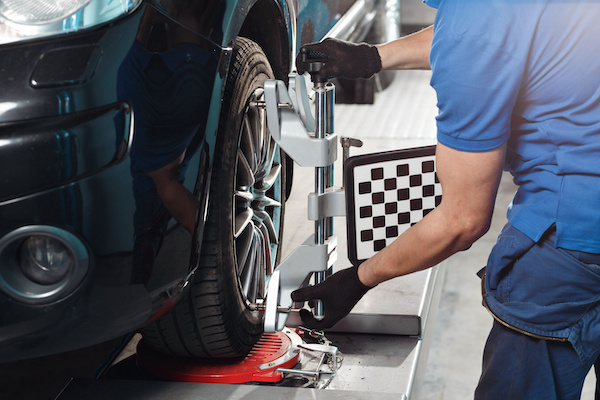
A professional wheel alignment is essential when it comes to safe vehicle handling. All of your car's wheels need to be pointing in the right direction at the right angles in order for your car to travel straight. They also need to be aligned to avoid premature wear. When you drive with bad wheel alignment, your tires will wear down fast and unevenly, and you may experience difficulty steering or handling your vehicle. This is why mechanics advise that you take care of wheel alignment as soon as an issue is detected. Several things can force your wheels out of alignment. They are typically related to poor driving habits, bad weather, and unsuitable road conditions. What Can Cause Misaligned Wheels? Driving over potholes Hitting curbs or road debris Minor vehicle collisions Bad shocks and struts or other suspension parts Vehicle mods such as lifting What Are the Symptoms of Misalignment? If your wheels are not pointing straight, you may notice one or more of the f ... read more
Posted on 11/16/2021
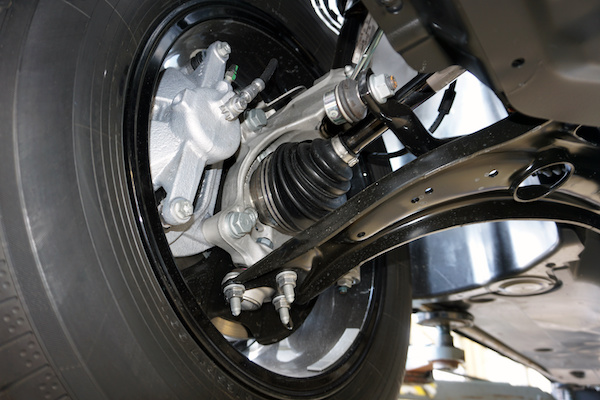
Wheel bearings are needed for your vehicle's hub, tire, and wheel assemblies to function adequately. A wheel bearing comes in a pair of round, metallic parts known as ball bearings. These little pieces enable smooth wheel rotation, movement, and overall handling. In other words, they play a critical role in your vehicle's steering system. Each wheel has its wheel bearings, so the average car should have four sets total. It would be very hazardous to drive with old or worn wheel bearings, as it may cause your wheels to stop turning unexpectedly. On average, you only have to replace your wheel bearings approximately every 85,000-100,000 miles. However, this number is merely an approximation, as it can vary on other factors: the quality of the bearings and how you care for your car. Another thing you should know is that you don't have to replace all of them at once unless you need it. Unlike tires, you only have to swap out the overworn ones. Signs of O ... read more
Posted on 10/11/2021

Most of us have all had our fair share of mishaps behind the wheel. We have habits that are sometimes difficult to break, and sometimes we don't even recognize that they are wrong because they come so easily to us. You may have gotten away with doing a handful of things, like talking on the phone, eating, or not signaling, but what happens when you don't? You are taking the chance of getting into an accident or even majorly injured. If you are on the road daily, we encourage you to please practice safe driving practices! MOST POPULAR DRIVING HABITS IN THE US: Speaking excessively or loudly to passengers Talking or texting on your phone* Driving with headphones on* Eating or drinking (non-alcoholic) beverages One-handed driving Not signaling when switching lanes, turning, or parking* Riding the tail end of other vehicles on the road* Not buckling up or using your seatbelt* Speeding* Fidgeting with sound and temperature controls Looking in the mirr ... read more
Posted on 9/13/2021

It's that time of year for traveling to watch your favorite football, basketball, or hockey team. Tailgating is a long-time tradition that brings friends and families together for delicious food and fun before a sporting event begins. When we hear tailgating, most people think of it taking place at a stadium or arena. However, tailgating can take place for those dedicated fans in their hometown! So whether you're at your at the game or you're just grilling up at a residence, please remember these tailgating safety tips: This rule applies to those at the game, where there are large crowds of thousands of people. If you're driving around a tailgating area, please be very careful of your surroundings. There are going to be a lot of pedestrians, including children. A lot of drinking takes place before sporting events. Please be sure to have a designated driver to take you and your loved ones home safely. You're probably going to use cameras to take pictur ... read more